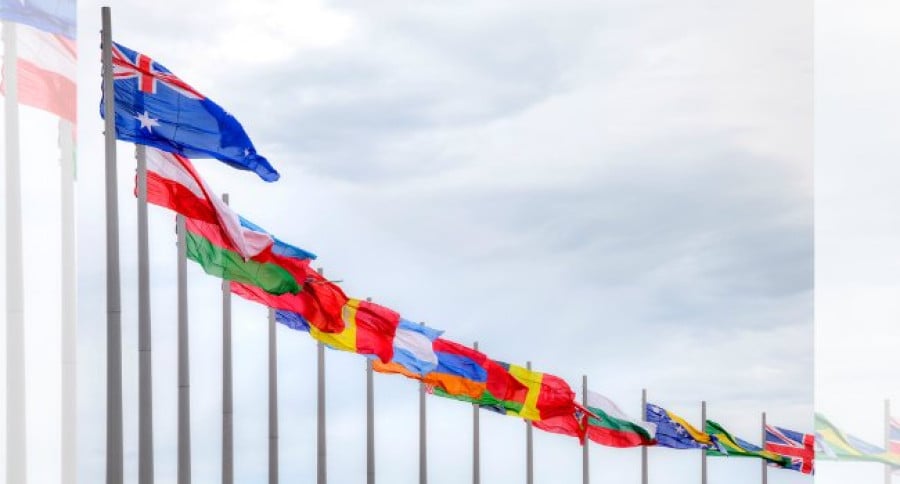The legal framework of the CAS Ad Hoc Division at the Rio Olympic Games

With the 2016 Summer Olympic Games in Rio in August 2016, sport arbitration is going to face again immense pressure to effectively resolve legal disputes in a narrow time window. For the eleventh time, the Court of Arbitration for Sport Ad Hoc Division (CAS AHD) will hold on-site hearings in disputes related to the Olympic Games and will deliver decisions within 24 hours from the submission of the claim, or within a timeframe compatible with the competition schedule. The CAS AHD as a so-called “CAS-Firefighter”1 has become indispensable to the Olympic Games and has received worldwide recognition for the awards that it renders with the utmost speed.2
This article analyses the legal framework and operation of the CAS AHD and also provides an overview on the newly implemented CAS Anti-Doping Division which will be in charge of all doping-related matters arising during this year’s Olympic Games. In a related article that we suggest is read next Key CAS Ad Hoc Division cases handed down at the Olympic Games the authors move on to examine several recent and significant CAS AHD decisions from prior Olympic Games to provide context and insight into some of the substantive issues that may arise over the coming weeks.
The Legal Framework of the CAS AHD
The Structure of the CAS AHD
The composition of the CAS AHD for the Games in Rio is determined by the International Council of Arbitration for Sport (ICAS) in accordance with Article 3 of the CAS Arbitration Rules for the Olympic Games (Ad Hoc Rules).3 In selecting the arbitrators for the AHD, the ICAS is bound by the Official CAS Arbitrator List,4 in accordance with Article 3 Ad Hoc Rules.
In the past, the CAS AHD was comprised of eight to nine arbitrators, representing all continents according to their origin. The composition of the CAS AHD for the 2016 Summer Olympic Games in Rio was disclosed in December 2015, with twelve arbitrators on the list.5
CAS AHD Jurisdiction
With respect to the jurisdiction of the CAS AHD, Article 1 of the Ad Hoc Rules refers to Rule 61 of the Olympic Charter, which confers upon CAS exclusive jurisdiction to hear:
“any dispute arising on the occasion of, or in connection with, the Olympic Games.”
The special jurisdiction of the CAS AHD as a CAS “division” begins ten days before the Olympic Games Opening Ceremony, and ends with the Closing Ceremony.
The CAS AHD’s competence to hear disputes between the International Olympic Committee (IOC) and National Olympic Committees (NOCs) or International Federations derives from Rule 61 of the Olympic Charter. The participating athletes submit themselves to CAS jurisdiction, by signing the Entry/Eligibility Conditions Form of the IOC issued for the 2016 Summer Olympic Games in Rio. This form contains an arbitration agreement, which establishes the jurisdiction of CAS over disputes in connection with the Olympic Games.
To continue reading or watching login or register here
Already a member? Sign in
Get access to all of the expert analysis and commentary at LawInSport including articles, webinars, conference videos and podcast transcripts. Find out more here.
- Tags: Anti-Doping | Arbitration | Argentinian Olympic Committee | Austrian Olympic Committee | Austrian Ski Federation (ASF) | Brazil | Canadian Alpine Skiing Federation (CASF) | Canadian Olympic Committee (COC) | CAS Arbitration Rules for the Olympic Games | Court of Arbitration for Sport (CAS) | Court of Arbitration for Sport Ad Hoc Division (CAS AHD) | Court of Arbitration for Sport Anti-Doping Division | Czech Olympic Committee (COC) | Dispute Resolution | Horse Sport Ireland (HSI) | International Olympic Committee (IOC) | International Sailing Federation (ISAF) | Italian National Olympic Committee (CONI) | NOC (National Olympic Committee) | Olympic | Olympic Charter | Olympic Committee of Slovenia (SOC) | Olympic Games Rio de Janeiro 2016 | Paralympic | Procedural Rules of the CAS Anti-Doping Division | Russian Olympic Committee | US Anti-Doping Agency (USADA) | Winter Games
Related Articles
- The dichotomy and future of sports arbitration - Appointment of arbitrators
- Key legal issues ahead of the Rio Olympic and Paralympic Games
- Essential reading to understand the legal issues at the Olympic Games
- Key CAS Ad Hoc Division cases handed down at the Olympic Games
Written by
Christian Keidel
Christian Keidel is a partner Partner at Lentze Stopperhas. He been focusing his area of expertise for more than 12 years on dispute resolution in sport and the advice of international sport associations. He has represented successfully stakeholders in sports in numerous cases in front of the dispute resolution bodies of UEFA and FIFA as well as the Court of Arbitration for Sport (CAS) and state courts. He is also a long-time advisor to international sports associations with respect to regulations, good governance and the commercialisation of rights.
Alexander Engelhard
Alexander Engelhard is a dispute resolution and commercial lawyer advocating before state courts and arbitral tribunals, especially in the sport, media and entertainment industry. He also acts as arbitrator and mediator. In addition, he advises clients on the drafting of contracts, rules and regulations.
He is a member of various arbitration and sports law-related organisations. He is also a lecturer at the University of Frankfurt for German and international arbitration, as well as on dispute resolution in national and international sport.
JUVE Handbook 2018/2019: highly recommended lawyer for dispute resolution.





